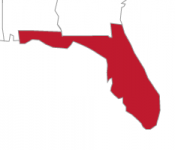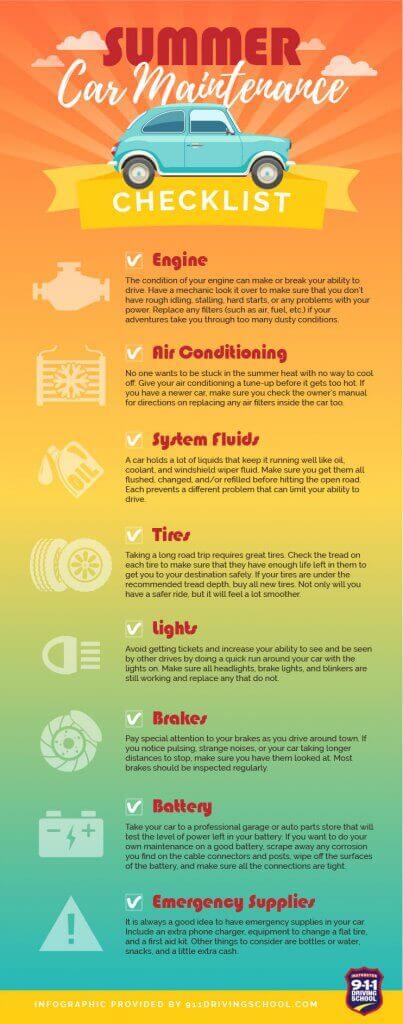Summer time is marked with adventure, vacations, and fun in the outdoors. To do most of these activities, you need a well-functioning vehicle to get around. To make sure you aren’t let down by your car, here is a maintenance checklist to keep you going.
- Engine
The condition of your engine can make or break your ability to drive. Have a mechanic look it over to make sure that you don’t have rough idling, any stalling, hard starts, or any problems with your power. Replace any filters (such as air, fuel, etc.) if your adventures take you through too many dusty conditions. - Air conditioning
No one wants to be stuck in the summer heat with no way to cool off. Give your air conditioning a tune-up before it gets too hot. If you have a newer car, make sure you check the owner’s manual for directions on replacing any air filters inside the car too. - System Fluids
A car holds a lot of liquids that keep it running well like oil, coolant, and windshield wiper fluid. Make sure you get them all flushed, changed, and/or refilled before hitting the open road. Each prevents a different problem that can limit your ability to drive. - Tires
Taking a long road trip requires great tires. Check the tread on each tire to make sure that they have enough life left in them to get you to your destination safely. If your tires are under the recommended tread depth, buy all new tires. Not only will you have a safer ride, but it will feel a lot smoother. - Lights
Do a quick run around your car with the lights on. Headlights, brake lights, and blinkers all have lightbulbs. Make sure each one is still working and replace any that do not. It is required by many states to have every lightbulb working, so you don’t want to get a ticket when you are away from home. It also increases your ability to see and be seen by other drivers. - Brakes
Pay special attention to your brakes as you drive around town. If you notice anything that doesn’t feel right, including pulsing, strange noises, or your car taking longer distances to stop, make sure you have them looked at. Most brakes should be inspected regularly, but that amount of time and distance is different for each brand. - Battery
Take your car to a professional garage or auto parts store that will test the level of power left in your battery. While it can fail at any time, knowing that it is strong before a vacation or road trip can help you plan better. If you want to do your own maintenance on a good battery, scrape away any corrosion you find on the cable connectors and posts. You can wipe off the surfaces of the battery and make sure all the connections are tight. Some models have caps you can remove to check their fluid levels. Remember that battery acid is dangerous, so wear protective gear and be careful. If you see anything that concerns you, consult your mechanic. - Emergency Supplies
It is always a good idea to have emergency supplies in your car. Include an extra phone charger, equipment to change a flat tire, and a first aid kit. Other things to consider are bottles or water, snacks, and a little extra cash.






